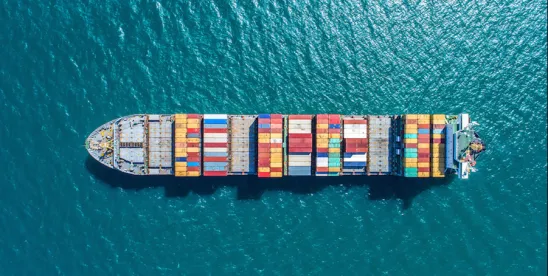Recent Developments
Commerce issues proposed rule that would ban certain connected vehicle imports.
On September 23, the U.S. Department of Commerce (“Commerce”) issued a proposed rule that would ban imports of connected vehicles and vehicle connectivity hardware with certain links to China or Russia, as well as require submission of certificates of conformity for non-prohibited vehicles and hardware. The prohibitions for targeted connected vehicles would not apply until model year 2027, while the prohibitions for targeted connectivity hardware would not apply until January 1, 2029, or model year 2030, depending on the circumstances. The comment period for the proposed rule is open through October 28. See our alert.
European Commission likely moving forward with China EV tariffs amid inconclusive vote.
On October 4, EU member states voted inconclusively on whether to establish countervailing duties ranging from an additional 7.8 to 35.5 percent for Chinese-origin battery electric vehicles (“BEVs”), on top of the existing 10 percent tariff on all cars. Ten countries (including Italy, France, and Poland) voted in favor, while five (including Germany) voted against, and twelve abstained. Proponents of the tariffs see them as necessary to prevent Chinese domination of the European EV market, while opponents have raised concerns that the measure would risk a trade war with China while not improving EU competitiveness. China has already launched a challenge at the World Trade Organization (“WTO”), along with probes into EU exports of pork, dairy, and brandy. Although the Commission has the intent and authority to move forward with the tariffs, it is still working with Beijing to find a solution, such as setting a minimum sales price. The EU action follows recent actions by Canada and the United States to similarly limit the imports of Chinese electric vehicles.
Canadian surtax on Chinese steel and aluminum to begin.
Canada has finalized its surtax on certain Chinese steel and aluminum, with a 25 percent surtax effective October 22, 2024. The tax will not apply to goods in transit on the effective date. These duties are designed to protect Canadian workers and production, and prevent Canadian markets from being flooded by diverted products because other countries have imposed similar measures. China has already started a WTO dispute over these tariffs and similar Canadian tariffs on electric vehicles.
Commerce issues rule allowing Middle East-based data centers to seek “Validated End User” status.
On September 30, Commerce issued a rule paving the way for data centers in certain countries, mainly in the Middle East, to apply for “Validated End User” status that would authorize them to receive advanced artificial intelligence (“AI”) chips subject to U.S. export controls. The measure appears to be a nod to the complex geopolitics around intensive AI development efforts taking place in the region.
United States to postpone trilateral export control agreement with Japan and the Netherlands until after the 2024 presidential election.
Reports indicate that the United States is likely to delay a long-awaited agreement with Japan and the Netherlands to restrict certain technology exports to China. While the White House had hoped to unveil the agreement over the summer, Japanese and Dutch senior officials have raised concerns regarding potential Chinese retaliation and the impact on industry revenue.
Russia deploys new long-range attack drone incorporating Chinese engines and parts.
Russia reportedly has deployed the drone, named the Garpiya, against both military and civilian targets in Ukraine. Sources indicate that the drone may mark the first instance of Chinese companies furnishing Russia with a whole weapons system, as compared to dual-use components, and that it could be the product of a secret weapons program. In response to these reports, the Chinese Foreign Ministry stated that it was not aware of the program and reiterated its neutral stance on the conflict in Ukraine. Meanwhile, the United States, while expressing deep concern, stated that it was not aware of any information to indicate that the Chinese government had knowledge of the project or was involved in it.
Commerce publishes guidance regarding export compliance best practices for banks.
On October 9, Commerce issued new guidance regarding how financial institutions can manage risk under the Export Administration Regulations (“EAR”). In particular, the guidance makes clear that banks can face liability under General Prohibition 10 under the EAR, which prohibits any person worldwide from engaging in a transaction with “knowledge” that a violation has occurred, is about to occur, or is intended to occur involving an item subject to the EAR. The guidance calls on banks to screen parties to a transaction against restricted party lists and against lists of entities that have exported sensitive items to Russia since 2023, which increasingly are becoming available. The guidance could mark a significant expansion of compliance expectations for banks. See more information here.
G7 publishes joint guidance for preventing evasion of export controls and sanctions against Russia.
On September 24, the Group of 7 (“G7”) countries (comprised of the United States, Canada, France, Germany, Italy, Japan, the United Kingdom, and the European Union) released a joint guidance document “on preventing the diversion of controlled items to Russia, including through third parties.” The guidance document describes (i) items that pose a heightened risk of diversion, (ii) red flag indicators of potential evasion, (iii) industry best practices, and (iv) resources and tools to screen counterparties and facilitate due diligence efforts.
United States targets new industries under Uyghur Forced Labor Prevention Act.
The U.S. government has announced new additions to the Uyghur Forced Labor Prevention Act (“UFLPA”) Entity List, adding companies in the steel and sweetener industries. Goods produced by companies on the list are subject to a rebuttable presumption that they are made with forced labor and thus prohibited from entering the United States. The list now totals 75 companies.
President Biden hosts Quad summit.
On September 21, President Biden welcomed Australian Prime Minister Anthony Albanese, Japanese Prime Minister Fumio Kishida, and Indian Prime Minister Narendra Modi for the fourth leaders’ summit for the Quadrilateral Security Dialogue regarding Indo-Pacific security, known as the “Quad.” Following the summit, the Quad countries announced new initiatives to maintain a “free and open Indo-Pacific” – including measures to (i) strengthen global health coordination and collaboration, (ii) deepen humanitarian assistance and disaster relief efforts, (iii) bolster maritime security, and (iv) reinforce regional infrastructure.
FBI stops large Chinese hacking operation.
Last month, U.S. Federal Bureau of Investigation (“FBI”) Director Christopher Wray revealed the FBI had seized control of a network of over 260,000 hacked internet routers and other devices (known as a “botnet”) controlled by Chinese government-linked actors. A Joint Cybersecurity Advisory issued by members of the Five Eyes (an intelligence alliance between Australia, Canada, New Zealand, the United Kingdom, and the United States) warns of the threat posed by malicious actors and provides guidance to protect against Chinese-linked botnet activity.
Amendment to National Defense Authorization Act (“NDAA”) aims to increase transparency of U.S. investments in China.
On September 19, co-sponsors of the Outbound Investment Transparency Act, Senators Bob Casey (D-PA) and John Cornyn (R-TX), announced that a scaled-back version of their 2023 bill would be added to the NDAA, making its passage by the U.S. Senate likely. The legislation would require U.S. investors to disclose to the U.S. Department of the Treasury certain outbound investments in sectors such as advanced semiconductors, artificial intelligence, and hypersonics in “covered countries” such as China.
Delay in implementation of European Union deforestation rules.
Responding to complaints from countries around the world, the European Commission has proposed delaying the applicability of planned EU anti-deforestation rules by 12 months. The rules thus would not go into force for “large companies” until December 30, 2025 and “micro and small enterprises” until June 30, 2026. The EU rules will require agricultural products sold in the EU to have a supply chain that does not contribute to problems of deforestation and environmental degradation. The uncertainty about how such rules will be applied has led to objections from many of the European Union’s trading partners. The proposal must still be approved by the European Parliament and the European Council.
In Case You Missed It...
BIS Proposes Prohibitions on Connected Vehicles with Links to China and Russia: Nine Observations for Companies to Consider
The U.S. Department of Commerce’s Bureau of Industry and Security, on September 23, 2024, issued a notice of proposed rulemaking to curb national security and privacy risks associated with information and communications technology and services with a nexus to China or Russia in vehicles on public roads that communicate with external sources.




 />i
/>i

